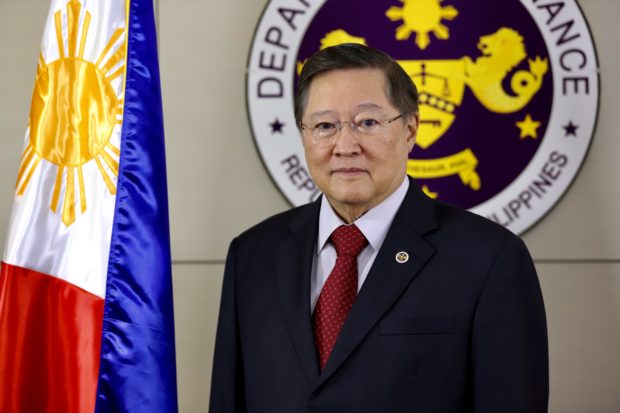President Duterte’s chief economic manager has urged the Asian Development Bank (ADB) to raise its capital to boost its lending portfolio to member-countries amid a protracted fight against COVID-19 and enjoin private-sector investments in vaccine production.
On behalf of the Philippine government, Finance Secretary Carlos Dominguez III told the ADB governors’ seminar on Monday night that the Manila-based lender, “as the largest and most experienced development institution in the Asia-Pacific region, must effectively assist developing economies to bounce back as fast as the developed countries” amid uneven response to the pandemic.
Dominguez, who serves as the Philippines’ ADB governor, noted that while rich countries had been able to provide more financial support and quickly vaccinate many of their people, poor countries struggled given their meager resources.
Dominguez said ramping up support to developing countries in the region “cannot be achieved if the [ADB] maintains a ‘business as usual’ approach.”
“As I have suggested long before COVID-19 struck, the ADB must continue reinventing itself and realigning its programs to meet new realities and to stay relevant amid the fast-changing landscape. In order to be responsive to critical needs, the ADB must level up,” Dominguez said.
Support members’ recovery
“Specifically, there is a need for the bank to seriously consider a substantial expansion in its loan portfolio in the next five-year period. This will effectively support its member-countries’ recovery even if this brings forward the need for a capital increase,” Dominguez added.
For Dominguez, “the effort to revive our economies will be a long one,” hence “developing countries need access to financial resources to boost health care systems and build resiliency against new virus outbreaks” as well as “support the recovery of the sectors that were severely affected by the contagion.”
Dominguez also reiterated his call for rich countries to share their excess vaccine doses with the rest of the world.
“It is only through the just and equitable distribution of the vaccines can the world achieve a safer recovery from the pandemic. The Philippines, therefore, supports the strong call for developed countries, multilateral institutions and global organizations to join forces in ensuring the accessibility of these life-saving doses to lower-income economies,” he said.
Vaccine production in Asean
In the same forum, Dominguez urged the ADB and the Association of Southeast Asian Nations to enjoin vaccine manufacturing in the region. “I don’t foresee this to be a totally government-driven enterprise; I believe it must be a partnership with the private sector.”
“Private sector brings efficiency and, frankly, in my experience as a government minister, efficiency is not No. 1 in our DNA. So I think a [public-private] partnership where the goals and the profit, the return on investment are very clearly defined—I strongly believe that the private sector should be involved, and so must the government to moderate corporate greed,” Dominguez said.
“Their [private sector’s] methods are so important, so I think a PPP or private-public partnership is called for in this area. For example, I know that in India, large manufacturers are totally private, and they do cooperate with the regulator not only for safety, but I believe also to have a social conscience,” he added. INQ
